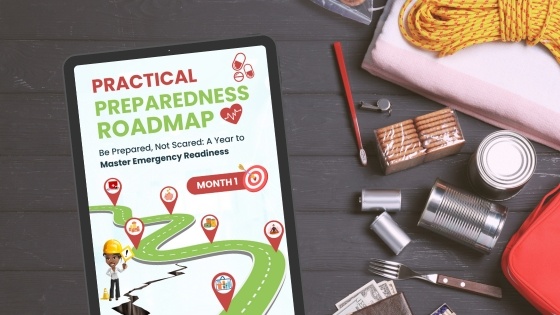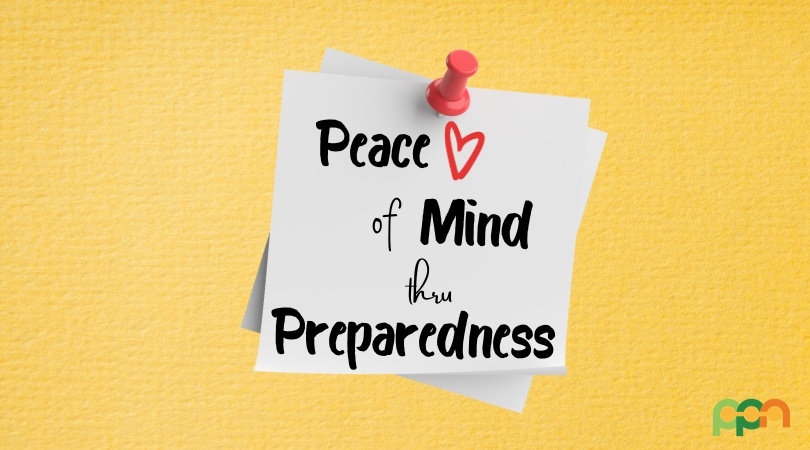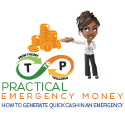Understanding the Significance of Preparedness and Peace of Mind
Preparedness and peace of mind play an essential role in our lives, providing us with the assurance that we are ready to face any situation and can handle the challenges that come our way.
Being prepared means taking proactive steps to mitigate risks and uncertainties. Whether they are related to personal emergencies or professional endeavors.
One cannot underestimate the significance of preparedness in safeguarding ourselves and our loved ones. Having a well-thought-out plan, we can better navigate through unexpected events, such as natural disasters or financial crises.
We can equip ourselves with the necessary resources, knowledge, and skills to minimize the impact of these situations. Thus, this will also ensure a smoother recovery process.
Peace of mind – A State of Tranquility
Alongside preparedness comes peace of mind – a state of tranquility and certainty that arises from being confident in our ability to handle whatever comes our way.
Peace of mind allows us to focus on the present moment without constantly worrying about what might happen in the future. It empowers us to make informed decisions, take calculated risks, and pursue our goals with clarity and conviction.
The Challenges of Being Unprepared: Why It’s Essential to Be Ready
In a world full of uncertainties, being unprepared for disasters can have a significant impact on our peace of mind. It is crucial to understand the challenges that come with being ill-prepared and why taking proactive measures is essential.
Here are some of the biggest challenges of being unprepared:
- The feeling of helplessness that comes with it.
When disaster strikes, those who are caught off guard often find themselves at a loss for what to do. This lack of preparedness not only affects their ability to respond effectively but also takes a toll on their mental well-being, causing unnecessary stress and anxiety.
- Being unprepared can lead to severe consequences in terms of safety and security.
Without proper planning and preventive measures in place, individuals may find themselves exposed to risks and dangers that could have been avoided. This not only puts their lives at stake but also jeopardizes the well-being of their family members and loved ones.
- Being unprepared can prolong recovery efforts following a disaster.
The absence of contingency plans and resources hampers the ability to bounce back swiftly from adverse situations. Whether it’s dealing with basic needs like food, water, or shelter or restoring infrastructure and essential services, lack of preparation significantly hinders the process.
The Benefits of Finding Peace of Mind Through Preparedness
Finding peace of mind can be a challenging task, in times of uncertainty and potential danger. However, through preparedness for natural disasters, we can attain a sense of security and tranquility. The benefits of finding peace of mind through preparedness in natural disasters are numerous and cannot be overstated.
Firstly, being prepared allows us to feel more in control during these uncertain times. Knowing that we have taken the necessary steps to mitigate risks and protect our loved ones can significantly reduce anxiety levels. This sense of control empowers us to face the future with confidence. Also knowing that we have done everything within our power to ensure our safety.
Secondly, preparedness promotes self-sufficiency. By having essential supplies such as food, water, and first aid kits, we are less reliant on external assistance during emergencies. This not only provides a sense of security but also gives us a greater ability to help others in need. In times of crisis, knowing that we have the necessary resources at hand instills a deep sense of relief and peace.
Furthermore, being prepared enhances our ability to respond effectively during natural disasters. Through emergency drills and training exercises, we develop vital skills that enable us to navigate challenging situations with calmness. By having an established plan in place, we can act swiftly and decisively when faced with adversity. This level-headedness not only increases personal safety but also contributes positively to overall community resilience.
Lastly, finding peace of mind through preparedness allows us to focus on what truly matters: our well-being and the well-being of those around us. When our minds are at ease knowing that adequate measures are taken for potential disasters, we can allocate our energy. This includes other important aspects such as rebuilding lives after an event or supporting others in need.
The Solution: One-Year Practical Preparedness Roadmap Program

The Practical Preparedness Roadmap program is designed to address these challenges by breaking down the process of emergency readiness into manageable, step-by-step tasks. This comprehensive guide will help you build the skills and knowledge needed to secure your future. Let’s explore the key components of this program.
Months 1-2: Getting Adequate Supplies and Survival Tools; Months 3-4: Mental and Financial Preparedness; Months 5-6: Storage Tips and Utility Supplies.
While for Months 7-8: Health and Evacuation Preparedness; Months 9-10: Livestock, Gardening & Self-Reliant Skills; Months 11-12: Home Security and Preparedness Lifestyle
The benefits of finding peace of mind through preparedness in natural disasters are undeniable. By taking proactive steps to prepare for potential emergencies, we gain a sense of control and self-sufficiency. And we also develop the ability to respond effectively during crises.
Ultimately, finding peace of mind through preparedness allows us to focus on what truly matters – our safety, well-being, and the well-being of our communities.
So, take the first step towards being prepared.











